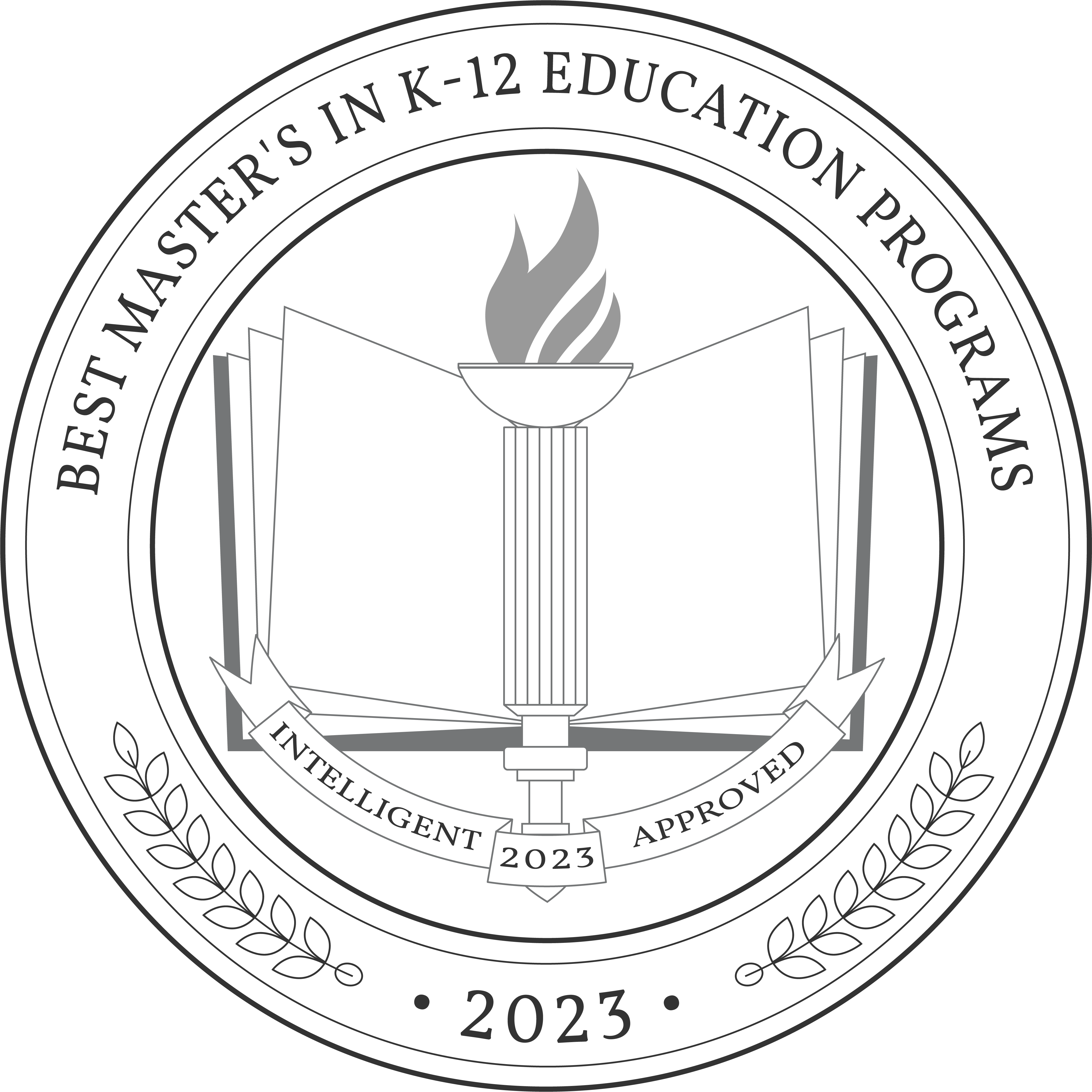Why This Matters
-
FOCUS ON STEM REQUIRES HIGHLY-TRAINED EDUCATORS
America’s renewed focus on science, technology, engineering, and math education requires technical proficiencies and master’s-level professional development for teachers.
-
THE U.S. NEEDS 25,300 MORE EDUCATORS BY 2029
High retirement levels and an increased use of literacy and other specialists in schools equate to an increased need for skilled master’s-level teachers and administrators in the next decade.
-
EARN $36,980 MORE PER YEAR WITH A MASTER’S
Those with leadership roles in K-12 education, such as principals, earn an average of $36,980 more a year than elementary level teachers.
Our Research
Our listed programs range from 30-51 credit hours of study, done either via online classes, on-campus classes, or a hybrid of both. All programs lead to a master’s degree in K-12 education, although the curricular focus of each program may vary from school to school.
Since licensure and credentialing for education is state-specific, there is no one national credential earned through these programs. Possible certifications you may earn include reading specialist certification, principal licensure, and secondary certification in a chosen area of emphasis.
Although most master’s degree programs in K-12 education are geared for certified teachers already working in the field, you may be able to successfully apply for graduate study without certification. Ask an admissions counselor at your chosen school to find out if their program is open to those who are not currently educators.
We evaluated each program on the basis of flexibility, faculty, course strength, cost, and reputation. Then we calculated the Intelligent Score for each program on a scale from 0 to 100. For a more extensive explanation, check out Our Ranking Methodology.
- 57 hours to write this article
- 179 universities and colleges we assessed
- 299 education programs we compared
The Top 50 Master’s in K-12 Education Degree Programs

Discover More Options
What You Should Know About This Degree
A master’s in K-12 education opens the door to a wide range of specialist and leadership positions in education. A master’s degree is usually required to move into administrative roles at the school and district level. You will also find opportunities available in think tanks and education-related government divisions at the state and federal levels.
Another potential career track leads to positions in specific fields of interest, including literacy, special education, TESOL and bi-lingual education, and STEM topics. Some programs lead to the possibility of board certification with subject-specific organizations, such as the National Association of Special Education Teachers.
The job outlook for positions that require a master’s degree in K-12 Education is excellent over the next decade. According to the federal government’s Occupational Outlook Handbook, the need for principals, special education teachers, and similar jobs will increase by approximately four percent over the next decade.
What’s Next?
Here are some questions to ask when researching K-12 Education programs:
- Am I eligible for this program? All programs require students to have a valid undergraduate degree from an accredited college or university. Some require students to have earned a specific GPA — usually 2.5 or higher — during that time. You may also be required to be a certified teacher in your state, but this varies from program to program. You should be able to find out all the necessary details at the institution’s website or with a quick call to an admissions counselor.
- How long does it take to complete this online degree? The length of time it takes you to complete the program is dependent on whether you attend classes full-time or part-time. If you are pursuing your master’s on a full-time basis, most programs can be completed in a year. Part-time attendance means it will take you two or more years to receive your degree.
When researching possible programs, one good resource is found in the admissions counselors at each school. They are a wealth of information and can answer your questions and help you focus your search, even if you’re not sure what institution you’ll be choosing. Many college websites also feature information to guide you in your choice.
Financial aid may play a part in your decision. Be aware of deadlines for submitting applications for the school’s aid program. It may also pay to check with any professional organizations you belong to to see if they offer scholarships, grants, or loans to members.